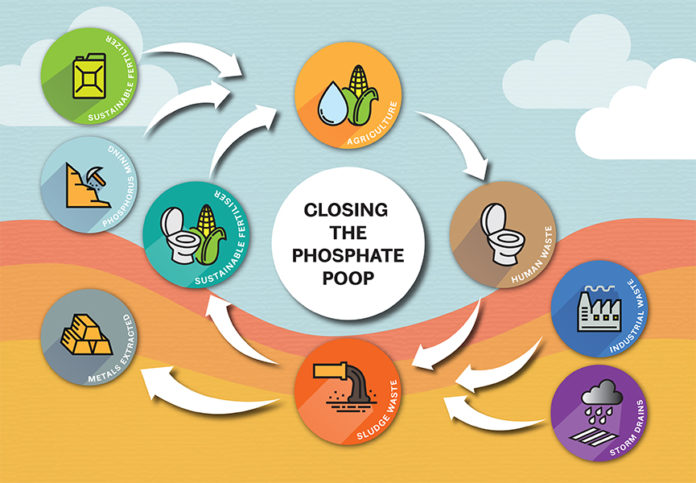RESEARCHERS at the University of Sheffield are working on solutions to ‘clean up’ sewage sludge, extracting toxic heavy metals to leave behind phosphate.
This will help to address the imminent crisis the world is facing in the shortage of this non-renewable, finite resource.
Fertiliser provides two major macronutrients for crop growth – phosphate and nitrogen.
Phosphate use in fertilisers has quadrupled in the last 50 years, due to a growing and ageing global population.
The main source of phosphate for fertilisers is mined phosphate rock, of which reserves are rapidly declining, with scientists predicting we only have between 30 to 370 years’ worth left.
There is no substitute for phosphate, it cannot be replaced by any other element.
Due to human waste and industrial effluent, sewage is a rich source of both phosphate and nitrogen.
With declining natural reserves, we should be looking at reusing more of the valuable deposits that can be found in sewage sludge and waste water.
Although sewage sludge is currently reused as fertiliser for some types of agriculture and forestry, there are stringent regulations in the UK about using this directly as fertiliser for crops or for animal grazing because of the toxic heavy metals present.
This results in the majority of sewage sludge globally being discarded untreated in landfill, which again, due to the concentration of heavy metals, can be harmful to the environment.
If we can remove these heavy metals, we will be able to reuse the remaining sewage sludge much more widely, making more fertiliser available for agriculture.
With the aid of mining techniques, James Bezzina, a Chemical and Biological PhD student funded by the University’s Grantham Centre for Sustainable Futures, is attempting to convert waste water and sewage sludge into a sustainable resource.
Mr Bezzina commented on the research: “We want to answer the question of how you feed a growing and ageing population sustainably.
“We need to be focusing on long-term, cost-effective sustainable solutions to solve the phosphate crisis so that we can ensure global food security for generations to come.”
In his research, Mr Bezzina uses tiny beads of microplastic which act like a magnet and attach themselves to the heavy metals particles in the sewage sludge.
He can then essentially ‘sieve’ the beads out and remove the heavy metals at the same time.
Flame analysis of the metals is then used, as they burn different colours, so that he can distinguish and separate them.
Mr Bezzina added: “The recovery of heavy metals such as silver, copper and zinc from sewage sludge could potentially be very lucrative.
“The estimated economic value from a community of 1 million people in the United States equates to around $8million.
“Therefore, in addition to taking a waste product and converting it into a sustainable resource, my solution also has the potential for economic viability.”
